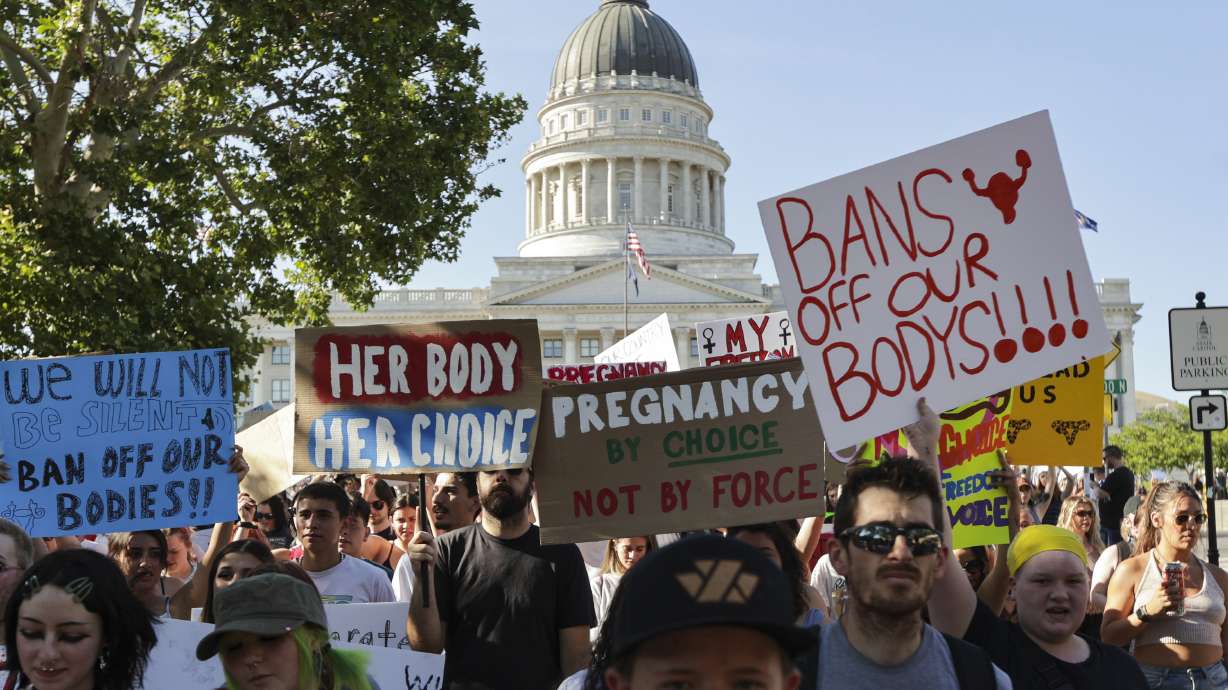Estimated read time: 4-5 minutes
This archived news story is available only for your personal, non-commercial use. Information in the story may be outdated or superseded by additional information. Reading or replaying the story in its archived form does not constitute a republication of the story.
SALT LAKE CITY — The U.S. Supreme Court's June 2022 decision to overturn Roe v. Wade opened the door for states to ban abortion.
Now, as the Utah Supreme Court continues to debate whether Utah's trigger law banning abortion in most circumstances can go into effect, lawmakers are gearing up to continue the fight over abortion access during the upcoming legislative session.
At least seven bills or resolutions have been proposed to address abortion this year, including a potential constitutional amendment — the details of which have yet to be released — sponsored by one of the key proponents of Utah's trigger ban, Sen. Dan McCay, R-Riverton.
One joint resolution in particular, HJR2, could allow the trigger ban to go into effect again by changing the standard by which the courts could grant injunctions while the legal process plays out. Although the joint resolution — sponsored by Rep. Brady Brammer, R-Pleasant Grove — doesn't mention abortion or the trigger law, it would only allow courts to issue restraining orders or preliminary injunctions when there is "a substantial likelihood" that the case will prevail in court.
Legal experts say the bill, which includes a clause making it retroactive, would allow the state to challenge the preliminary injunction which is currently preventing Utah's near-complete ban on abortion to go into effect.
The hold on Utah's trigger law was enacted last summer, shortly after the Planned Parenthood Association of Utah and the ACLU of Utah sued the state, arguing the ban violates Utah's constitution. Third District Court Judge Andrew Stone issued a preliminary injunction that temporarily stops the law from going into effect, and the Utah Supreme Court later declined to lift the injunction.
If passed, HJR2 wouldn't immediately allow the trigger law to go into effect, but it would allow the state to challenge the injunction and force Planned Parenthood Association of Utah to prove they have a substantial likelihood of success.
"The bill would not immediately end the preliminary injunction, but it strips parties of the basis that the judge relied upon in the PPAU case," University of Utah law professor Teneille Brown told KSL.com in an email. "That means that the state attorneys could revive their challenge to the preliminary injunction in a new motion before the court."
The bill also wouldn't change the final outcome of the case before the Utah Supreme Court, but it could lead to a costly legal battle over the injunction while the lawsuit plays out.
"I suspect the endgame here is to require PPAU to spend even more money on legal fees, as this gets dragged through the courts and more ... appeals," Brown said. "Of course, what the taxpayers of Utah need to see is that these efforts also require a great deal of money and expense by the state, funded by us."
"While we know this resolution is aimed squarely at our ongoing lawsuit against Utah's cruel abortion ban, it will also create havoc across Utah's courts far beyond our litigation," Planned Parenthood CEO and Executive Director Karrie Galloway said in a statement. "It makes clear that some politicians will stop at nothing to deny the people in this state reproductive freedom and access to abortion by subverting longstanding and fundamental principles of our legal system to tilt the field in their favor."
Brammer declined to comment on the bill and whether it was intended to target the Planned Parenthood Association of Utah lawsuit.
Lawmakers on both sides of the aisle have proposed further legislation to tweak Utah's trigger law. Rep. Ray Ward, R-Bountiful, wants to clarify the language that provides exceptions when the health or life of the mother is at risk.
SB88, sponsored by Sen. Kathleen Riebe, D-Cottonwood Heights, would remove the reporting requirement, and would instead require physicians to follow existing laws for reporting child abuse or neglect.
Democratic Reps. Angela Romero and Jennifer Dailey-Provost have opened bill files to modify abortion law, but the details have not been made public.
McCay, who sponsored the trigger ban in 2020, has also opened a bill file to amend abortion rights in the Utah Constitution, but it has also not been released publicly. If passed by the Utah Legislature, McCay's proposed amendment would still need to be approved by a majority of voters in a November election.









